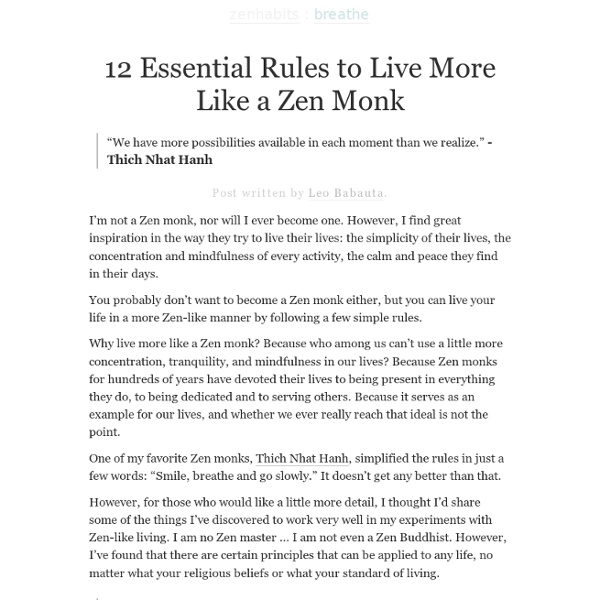Faith of Our ForeFathers
December 2006 The Founders are once again in vogue. More than 35 books have been published about them just since January according to Gordon Wood, the foremost authority on that era. One of the sub topics of these books concerns the depth of the religious convictions of these men, particularly the Big Six: Washington, Franklin, Jefferson, Madison, Hamilton, and Adams. Authors coming from a conservative religious perspective believe that the Founders were highly religious and that the religious convictions of these men have been underestimated or deliberately ignored.
From Sand to Processor or How a CPU is made - Intel
It is hard to believe that a modern processor (CPU) is the most complex product in the world. What is so complex in this piece of metal? In this article I will try to explain how a modern processer (CPU) is made from the sand.
100 Reasons to Mind Map
100 examples of how you can use mindmapping whether completely new to mind maps or a seasoned pro. I hope the list helps generate ideas for you. 100 Reasons to Mind Map 1. Explore a subject 2. Study & learn a new topic, culture or country 3.
52 Tips for Happiness and Productivity
By Leo Babauta This is something I’ve been wanting to write for some time — a Handbook for Life. Now, is there any handbook that can be a guide to every single person? Of course not.
Holocaust Timeline
Jump to: 1938 1939 1940 1941 1942 1943 1944 1945 1933 January 30, 1933 - Adolf Hitler is appointed Chancellor of Germany a nation with a Jewish population of 566,000. February 22, 1933 - 40,000 SA and SS men are sworn in as auxiliary police. February 27, 1933 - Nazis burn Reichstag building to create crisis atmosphere.
DNA Animations
Animation Adenine (A), cytosine (C), guanine (G), and thymine (T) are the components of nucleic acid that make up DNA. In 1950, Erwin Chargaff published a paper stating that in the DNA of any given species, the ratio of adenine to thymine is equal, as is the ratio of cytosine to guanine. This became known as Chargaff's ratio, and it was an important clue for solving the structure of DNA. Chronic myeloid leukemia (CML) is caused by a mutation that leads to an abnormal protein that is always active.
A Better Life In 100 Ways
You don’t like your life? Change it! Change your life for the better! Don’t have any clue on how to do it?
4 Ways to Focus
Edit Article262,000 views Edited by Santiago.brady and 35 others Edited 23 hours ago Four Methods:Improving Your FocusBeing PreparedGetting OrganizedAvoiding Distractions Improving your focus can make you a better student or employee as well as a happier and more organized person.



